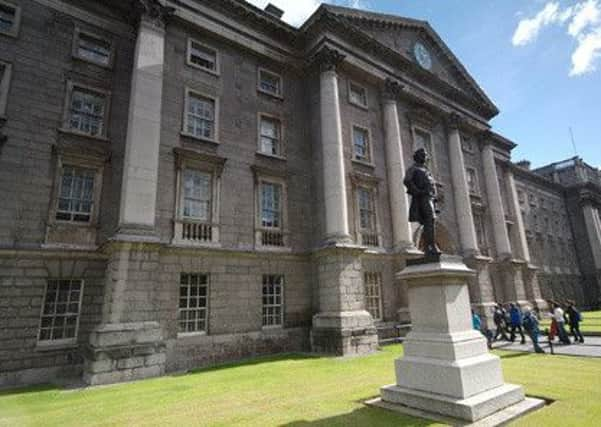Letter exaggerates suffering of Protestants in the Republic


Rainey’s article on military pension files, released online in Dublin recently, accurately quoted the historian Peter Hart on “campaigns of what might be termed ‘ethnic cleansing’” in 1922 against southern Irish Protestants.
Hart did indeed state that in his 2003 book, The IRA at War.
Advertisement
Hide AdAdvertisement
Hide AdStrangely, Coleman is also correct in citing Hart denying that ethnic cleansing had taken place.


The confusion arises because Hart wrote contradictory things in two essays, nine pages apart, in the 2003 book. The claim of ethnic cleansing was in a reprinted essay first published in 1996. The corrective denial was in a new essay.
I think that Hart is perhaps best approached as a clever ideologue (though not so much in this case).
Robin Bury (‘The Catholic nationalist Irish state alienated Protestants,’May 23), whose book on southern Protestants I reviewed in History Ireland, writes about the ethnic cleansing claims.
Advertisement
Hide AdAdvertisement
Hide AdHe has invented a new phenomenon, ‘non-violent … ethnic cleansing’.
Bury’s southern loyalist argument is interesting, but exaggerated.
It will come as a surprise to southern Protestants that they suffered great unhappiness.
Were Protestants educationally ‘retarded’ by being compelled to learn Irish?
Advertisement
Hide AdAdvertisement
Hide AdSince they had, overall, more qualifications than equally compelled Roman Catholics, what does that say about the latter?
Also, Protestants were richer, generally.
They enjoyed fuller employment in so-called ‘Protestant firms’, which practiced discrimination without much interference.
Protestants in public employment faced no bar on promotion, as possibly Robin Bury can personally attest.
Of course, there were reactionary aspects to southern society, which many of us opposed.
Advertisement
Hide AdAdvertisement
Hide AdThese became a rather larger pain in the neck to Catholics, who showed considerably more signs of discontent than Protestants.
The 1944 Roman Catholic ban on adherents attending TCD was aimed, I remind Robin Bury, at Roman Catholics.
They ignored it in ever greater numbers until the ban was rescinded in 1971.
The state relied on Roman Catholic and Protestant churches to supply education, health and moral welfare services, a factor in continuing inequality in those areas.
The state facilitated Protestant education.
Advertisement
Hide AdAdvertisement
Hide AdIt continues to do so in new provisions that discriminate against the Roman Catholic Church, which may no longer use baptism certificates to exclude non-believers and others from Catholic schools.
The Church of Ireland continues to use that provision.
All of this stems from a refusal by the state to take full responsibility and to reform education and health provision.
Historically, the Church of Ireland was delighted with this attitude and remarked caustically on comparable pre-1972 Northern Ireland government policy.
Southern Protestants were never as ‘alienated’ from the southern state as Robin Bury pretends.
Advertisement
Hide AdAdvertisement
Hide AdProtestant ‘greening’, to which he refers, is testament to that.
Alienation from northern Protestants also goes back further than he suggests. I suggest that readers consult (besides my essay, ‘The Embers of Revisionism’) Valerie Jones’ recent book on the revolutionary period, Rebel Prods.
If I might paraphrase and reverse Liam Kennedy’s famous acronym, Robin Bury is in danger of coming across as a ‘MOPE’, the Most Oppressed Protestant, Ever.
Dr Niall Meehan, Faculty Head, Journalism & Media, Griffith College Dublin